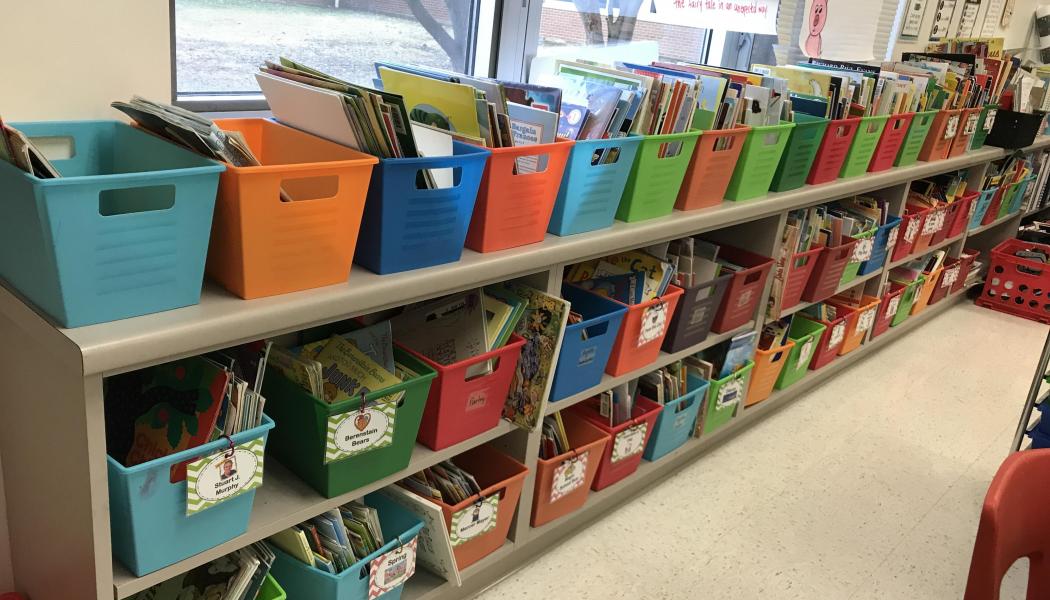Classroom Libraries: The Research

Join Our Community
Access this resource now. Get up to three resources every month for free.
Choose from thousands of articles, lessons, guides, videos, and printables.
We know where there are books, there are readers. The reverse is especially true: Where there aren’t any books, there are no readers. For years researchers have studied the positive effect on student achievement of having books close by in the classroom and in the school library (Allington, 2012; Krashen 1994, 2004; Morrow 1998; NCTE 2017).
Students in classrooms with quick access to a large amount of rich reading material are more motivated to read and reach higher levels of reading success. Krashen (2004) says simply, “More access to books results in more reading.” McQuillan (1998) found that “there is now considerable evidence that the amount and quality of students’ access to reading materials is substantively related to the amount of reading they engage in, which in turn is the most important determinant of reading achievement.”
A high priority, then, is to fill each classroom with a wide spectrum of high-quality, engaging narrative and expository text, with a range of levels of difficulty. Classroom libraries should be routinely maintained by adding books of current interest and discarding worn and outdated titles. Gerald Duffy (2014) recommends having at least thirty trade books per student. We believe this is a good starting point. If our classrooms average thirty students, we should have at least 900 books per classroom. Looking for ways to build your library? Here are a few suggestions you may find helpful:
Lobby for Funding – Do everything you can to lobby district officials to fund classroom libraries before considering program purchases.
School Book Drive – Organize a school book drive where parents and community members can donate their gently used books to your school.
Internet Resources – Donors Choose is a free service wehre teachers can post a classroom need that they would like to have funded. Interested donors can contribute to funding the request for books and/or other classroom materials.
Request Letter – As you keep families informed about their children’s learning via your class newsletter and/or website, ask if they have any books or magazines that they could donate to help build the classroom library.
Online Reading – It is wonderful to have a vast print library, but remember that may students enjoy reading online. Inquire about subscriptions that your school may have to online texts. Children can often access these resources with an Internet connection from home or the neighborhood library. Contact the public library that serves your school community to identify other electronic resources children can access with their library card.
Public Library Book Sales – Check out your public library website and put the date of the next library book sale on your calendar. There are bound to be several inexpensive books, both fiction and nonfiction, that you can add to your classroom library collection.
Library Book Bags – Get to know your public library school liaison. Investigate how to get teacher book bags that can be checked out for a period of time. This will give your students more access to books. Remember to plan ahead and make your request with an ample amount of lead time for the library staff to fulfill your request. Find out how you can get a teacher library card that will allow you to check out materials even if you do not live in the community.
References
Allington, Richard. 2012. What Really Matters for Struggling Readers: Designing Research-Based Programs. 3rd ed. Boston: Allyn and Bacon.
Duffy, Gerald G. 2014. Explaining Reading: A Resources for Teaching Concepts, Skills, and Strategies. New York: Guilford.
Krashen, Stephen. 1994. “An Answer to the Literacy Crisis: Free Voluntary Reading.” School Library Media Annual 12: 113-22
Krashen, Stephen. 2004. The Power of Reading: Insights from the Research. 2nd ed. Portsmouth, NH: Heinemann.
McQuillan, Jeff. 1998. The Literacy Crisis: False Claims, Real Solutions. Portsmouth, NH: Heinemann.
Morrow, Lesley M. 1998. Motivating Lifelong Voluntary Readers. Unpublished manuscript, New Brunswick, NJ: Rutgers University.
NCTE. 2017. “Statement on Classroom Libraries” https://ncte.org/statement/classroom-libraries/





